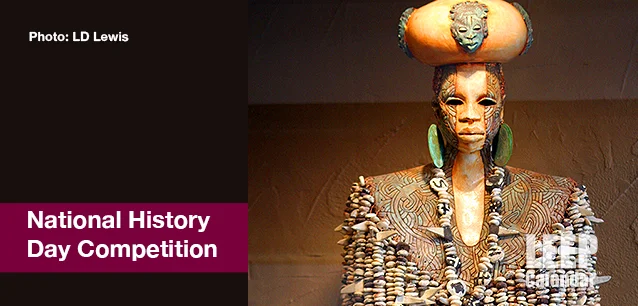 AD
AD
Today is: May 28
Scroll to explore events active on this date.
LEEP INK FEATURES

May Blooms: Events in May 2025
Along with October, May is one of the most densely packed months of the year. It's before the summer humidity and the last whole month of the school year. The weather is warming in t...

Sweet June 2025
The solstice on the 20th marks the onset of summer (Northern Hemisphere) or winter (Southern Hemisphere). Many people, particularly in Europe, North America and Asia, will be embarking o...

Events in April 2025
Spring has sprung in the north, and the first hints of Autumn are on the horizon in the south. April is the month spring (or fall) gets underway, and it is filled with religious celebrations, including the Mu...
About National History Day Competition
Politics , Civil Rights
Competitions & Awards , United States
Ends: Jun 15, 2023
DESCRIPTION:
History Day is a competition that begins in May. It was created in 1974 "to counter the devaluation of history as a field of study." Students present their research, analysis, and conclusions in one of five formats: a paper, an exhibit, a performance, a documentary, or a website. The contest is open to students in junior high and high school. Each year a theme is released, and students and teachers then choose a topic within that theme. Approximately 500,000 students enter annually, and around 2,500 make it to the finals. About 100 participants receive awards ranging from $500 to $2000 in winning categories.
Most Americans are unaware that we do not study history in the United States in K-12. We learn social studies. Social studies focus on when, who, and what the event's impact on society, the contributions of individuals, and stories. History includes the why and context of the period it occurred. It requires critical thinking, analysis, and the ability to look at events, trends, and the larger picture dispassionately and absent from current political pressures or trends. Whereas social studies are more about sociology and culture, history is closer to science in its analytical approach to information.
VIDEOS
SUPPORTING DOCUMENTS
Currently, this event does not have supporting documents.
ADDITIONAL IMAGES
Currently, this event does not have supporting images.
Where would you like to go now?
 AD
AD


/footer-logo.svg)
